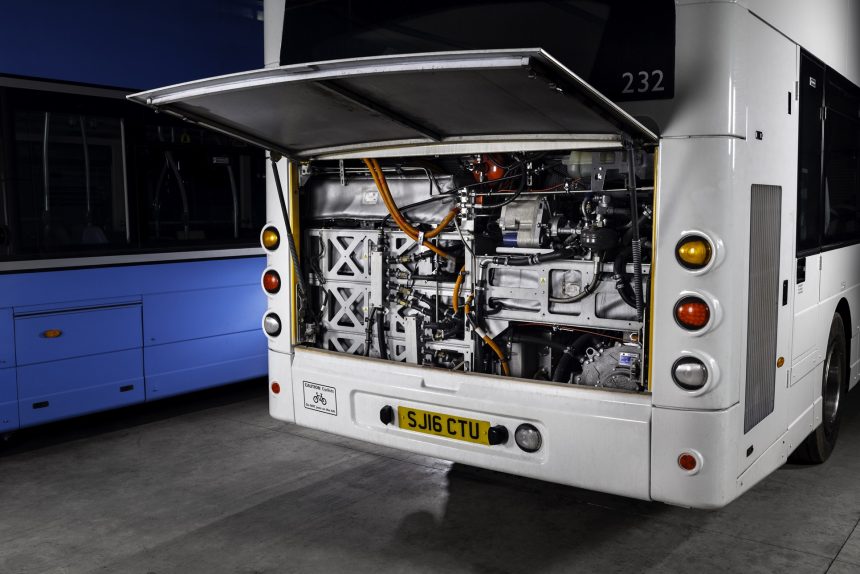KleanDrive has unveiled the latest version of its battery-electric bus repower package that the supplier says can be installed at the vehicle owner’s depot and delivers “sector-leading” performance and running costs.
The ‘plug and play’ driveline has 352kWh of energy storage, of which 324kWh is usable. That will deliver a claimed 195-mile range. Lithium iron phosphate (LFP) chemistry within cells from CATL is utilised.
Batteries, a Voith motor and power electronics are mounted within a framework and skid system, although the supplier says that it is technology provider agnostic.
KleanDrive claims that the repower package gives a saving of £300,000 over a new battery-electric bus while delivering operating costs of a third of a diesel. The driveline is scalable and modular for rapid installation where the diesel engine and transmission were located.
Designed for volume manufacturing off-site, the KleanDrive powertrain can be installed in partnership with the vehicle owner’s engineering staff. Software has been developed internally by the supplier “to manage the interaction between the original vehicle and the new drivetrain while operating both with maximum efficiency,” it states.
FirstGroup took a £1 million stake in KleanDrive during 2024, although it has not been revealed whether any repower order for First Bus subsidiaries has yet been placed with the supplier. KleanDrive has secured a repower order for 18 Volvo B5TL open-top double-deck buses with Lothian, however.
Speaking about the latest iteration of the package, CEO Joe Tighe says: “We have developed a battery-electric cell and motor agnostic drivetrain system that can rapidly incorporate fully warranted new technologies in this incredibly fast-moving market.
“By working with industry-leading suppliers – as opposed to developing individual components in-house – we give customers access to the best technology in class in a system that has been designed to be efficient, easy to service, cost effective, and reliable.”
Mr Tighe adds that use of LFP cells from CATL “gives us more usable capacity than competitor larger gross capacity nickel manganese cobalt battery packs, translating to a class-leading 195-mile range at 50% passenger load.”
Installation of the repower skid at the operator’s premises after an initial prototyping adds to the overall efficiency of the process, he continues. That approach also fosters engineers’ ability to work on the vehicles for routine maintenance after conversion.



























